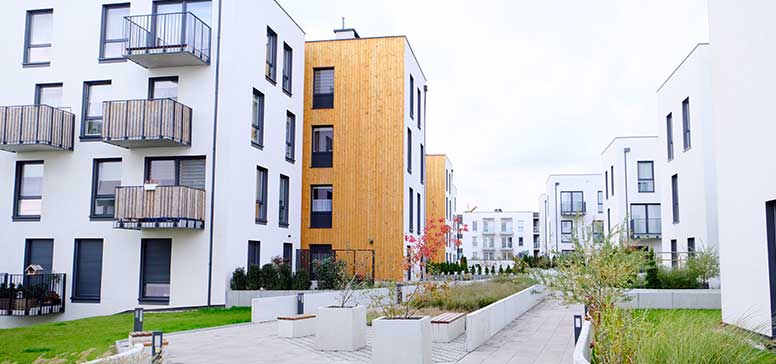The Ultimate Comparison: HOA Condo vs. Traditional Home
The Ultimate Comparison: HOA Condo vs. Traditional Home
Blog Article
The Role of an HOA in Developing and Enforcing Community Standards for Locals
The duty of a Homeowners Association (HOA) in applying and establishing area guidelines is essential to maintaining a natural and orderly property environment - hoa condo. By developing clear regulations that regulate facets such as building upkeep and community conduct, the HOA not only sets requirements for locals however also fosters a feeling of belonging and liability. Nonetheless, the implementation of these guidelines can offer different challenges, raising concerns regarding interaction, justness, and area interaction. As we check out these intricacies, it comes to be evident that the impact of an HOA extends far beyond mere rule enforcement.
Recognizing House Owners Associations
Homeowners organizations (HOAs) act as governing bodies for property neighborhoods, playing a vital duty in preserving residential or commercial property values and promoting a sense of area. Normally developed by programmers, HOAs are composed of homeowners within a marked area that choose a board to look after the association's tasks. The primary functions of an HOA include imposing community regulations, handling usual areas, and organizing neighborhood occasions.
HOAs run under a set of controling files, consisting of limitations, commitments, and conditions (CC&R s), which describe the civil liberties and responsibilities of homeowners. These regulations aim to make sure that buildings are maintained to a specific criterion, consequently shielding the aesthetic charm and general worth of the community. Furthermore, HOAs often collect dues from homeowners to money upkeep, landscaping, and other neighborhood solutions.
The presence of an HOA can dramatically influence the living experience within an area (hoa condo). While some citizens value the structured environment and facilities given, others may find certain laws restrictive. Balancing the passions of all home owners is crucial for an HOA to operate effectively, guaranteeing that it serves its designated function of enhancing community living while appreciating private house owner legal rights
Establishing Neighborhood Standards

To begin, an HOA should conduct surveys or convene that allow citizens to articulate their suggestions and worries. This participatory process fosters a sense of possession and raises conformity. Next off, the HOA board should examine the comments to determine typical themes and priorities that necessitate formal inclusion in the standards.
It is additionally vital to make certain that the guidelines are clear, concise, and easily understood. Obscurities can bring about disputes and misunderstandings, undermining the objective of the standards. Moreover, the standards should be thorough, covering different elements of area living, consisting of residential property upkeep, sound levels, and use usual areas.
Enforcement of Guidelines
Efficient enforcement of neighborhood rules is critical for maintaining order and ensuring that all residents comply with the established guidelines. An HOA must implement a structured strategy to implement these regulations, which usually includes a combination of monitoring, interaction, and fines for non-compliance.
First, routine examinations and community patrols can aid determine offenses, guaranteeing that regulations are regularly used throughout the area. This positive surveillance allows the HOA to attend to concerns before they intensify, fostering a sense of responsibility amongst residents.
Second, clear communication is crucial. Locals must be educated of the rules and the procedures for reporting infractions. An open line of interaction encourages locals to voice worries and look for explanation on guidelines, which can improve compliance.

Finally, when infractions happen, the HOA needs to implement consequences as described in the regulating files. This may include warning letters, fines, or, in serious cases, lawsuit. It is necessary that charges are applied relatively and constantly to preserve count on within the community. By effectively applying policies, an HOA can grow a harmonious living environment that mirrors the cumulative values of its residents.
Advantages of HOA Laws
Countless advantages arise from the execution of HOA policies, which offer to improve the lifestyle within an area. One primary benefit is the maintenance of residential or commercial property worths. By imposing criteria for appearances and upkeep, HOAs make certain that homes and typical locations remain eye-catching, fostering a preferable living environment that can cause increased building values gradually.
Additionally, HOA policies advertise consistency and harmony within the community. This comprehensibility in style and maintenance aids to produce a feeling of belonging among citizens, adding to neighborhood pride and a positive atmosphere. Moreover, developed guidelines help with problem resolution amongst neighbors by providing clear expectations and procedures for actions, thereby reducing disagreements.
One more substantial advantage is the stipulation of common services and solutions. Many HOAs manage community facilities such as parks, clubs, and swimming pools, which enhance leisure opportunities for locals. These facilities not only improve the quality of life but additionally urge social communication.
Eventually, the guidelines set forth by an HOA cultivate a well-organized, unified neighborhood, ensuring that residents appreciate a high criterion of living while cultivating a helpful environment for all property owners.
Common Challenges Encountered by HOAs
In the middle of the benefits that property owners associations (HOAs) can provide, they likewise encounter a range of challenges that can impede their efficiency. Many house owners may not take part visit the site in conferences or community tasks, leading to a separate between the HOA board and citizens.
Another difficulty is the enforcement of policies and guidelines. Conflicts can arise when locals feel that enforcement is irregular or prejudiced, possibly leading to problems within the community. Furthermore, HOAs usually encounter financial restrictions, which can restrict their capacity to maintain common areas or fund community jobs. This can develop dissatisfaction among locals that expect high criteria of upkeep.
Furthermore, navigating lawful complexities can be discouraging for HOAs. Evolving and altering demographics area needs need HOAs to adjust their guidelines, often satisfying resistance from long-standing locals that are accustomed to traditional standards.
Conclusion

By formulating clear policies that control aspects such as residential or commercial property maintenance and area conduct, the HOA not just establishes requirements for citizens yet also fosters a sense of belonging and responsibility.Homeowners organizations (HOAs) serve as regulating More about the author bodies for household areas, playing an important function in keeping property values and fostering a sense of neighborhood. Lots of home owners might not get involved in conferences or area activities, leading to a disconnect between the HOA board and locals. Developing and altering demographics area needs need HOAs to adapt their guidelines, typically meeting resistance from long-standing residents who are accustomed to traditional standards. Via the growth of clear guidelines and constant enforcement, HOAs promote home maintenance, community satisfaction, and trust fund amongst check this site out locals.
Report this page